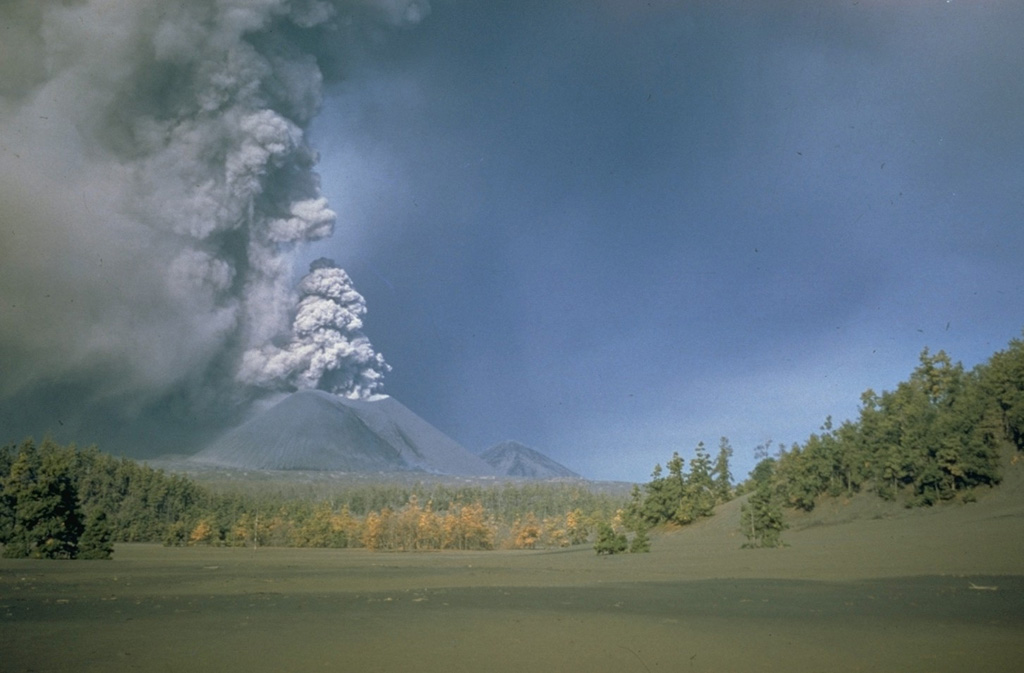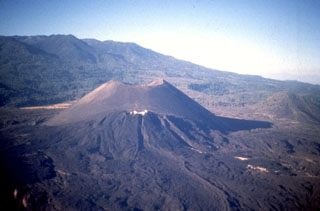Global Volcanism Program | Image GVP-03769

An ash plume rises from the summit crater of Parícutin sometime during 1946-48. A thick ash deposit covers the foreground. An estimated 4,500 cattle and 550 horses died during the heavy ashfall in the early months of the eruption, devastating the local people who depended on the animals for food, plowing, and transportation. Ashfall was deeper than 15 cm over a 300 km2 area around the volcano and continued with varying intensity throughout the 9-year-long eruption.
Photo by Ray Wilcox (U.S. Geological Survey).
![]() This image is made available under the Public Domain Dedication CC0 license, but proper attribution is appreciated.
This image is made available under the Public Domain Dedication CC0 license, but proper attribution is appreciated.
Galleries: Ash Plumes and Ashfall | Human Impacts | Scoria Cones
Keywords: eruption | ash plume | ash | plume | explosive eruption | volcanic field | human impacts | environmental impact | agriculture | deposit | tephra | scoria cone

Michoacán-Guanajuato
